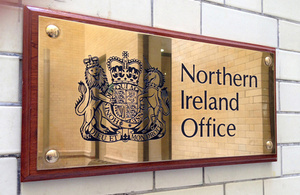Alliance marks safety milestone with community donations
The alliance made up of 3 delivery partners – Sellafield Ltd, Morgan Sindall Infrastructure and Arup – marks reaching 5 million accident free operation hours by donating to West Cumbria Carers and the PPE fund which Sellafield Ltd’s unions (GMB, Unite and Prospect) set up to help protect local NHS staff and nursing teams.
In order to mark the milestone achieved in January this year, each of the 3 organisations decided to donate £5,000 to charity; the Infrastructure Strategic Alliance (ISA) workforce voting for the charity they felt should benefit.
West Cumbria Carers provides support to carers who look after a family member, relative, friend or neighbour who could not manage without their help.
Their work carries on through the Covid-19 pandemic; they continue to support young carers by distributing craft kits to help pass the time in these challenging circumstances.
Sellafield Ltd’s unions (GMB, Unite and Prospect) have joined forces to provide vital PPE, to help protect the local NHS staff for the ongoing battle against Covid-19 in West Cumbria at the West Cumberland Hospital and within the Copeland and Workington community nursing teams.
Mark Jones, Head of ISA, said:
I am extremely proud of everyone who works and supports ISA for their continued commitment to the safe delivery of our projects, driving risk and hazard reduction across the Sellafield site.
Achieving 5 million hours RIDDOR (reporting of Injuries, Diseases and Dangerous Occurrences Regulations) free over the last three and a half years is not easy and requires continuous focus, particularly in the complex and challenging environment in which we work.
West Cumbria Carers were delighted with the donation and added:
Many thanks to the ISA staff for their donation. The feedback from young carers shows just how much the craft packs have been appreciated.
Nick Jeffery, UNITE convenor, said:
On behalf of our campaign group, I’d like to thank the ISA teams for this fantastic donation to the PPE fund which is helping us support doctors, nurses and carers in our communities and making a real difference at this very difficult time.
